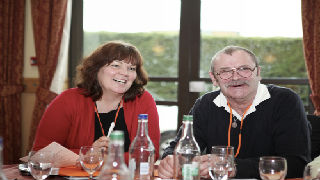Use of language is important when applying for funding, as it reflects underlying attitudes of the MS Society. In our leading role of challenging society’s view of MS, we must use the appropriate language ourselves.
Individuals with MS, and those who care for them, can describe themselves however they like - it’s a personal choice. However, when representing the MS Society, it is important to follow MS Society guidance.
Our main objective and guiding principle is to use inclusive, positive, empowering language. The list below shows some examples which may be particularly relevant for trust applications, but is not exhaustive.
If you are unsure about the acceptability of language, ask the following:
Are you using language that implies the condition or impairment is the problem of the person?
For example, “I can see how your MS means you can’t come”. It is preferable to focus on removing barriers, e.g. “is there anything I can do that will make it easier for you to attend?”
Are you using language that assumes you know how the person or group is feeling?
For example, “brave MS sufferers fight for treatment”. It is preferable to use non-assumptive language, such as “the group of Mums, who all have MS, campaign for access to treatment”.
Are you mentioning the impairment or condition unnecessarily?
For example, “it was the lady in the wheelchair who said she enjoyed the meeting” is less inclusive than “it was the blonde lady in the pink dress who said she enjoyed the meeting”.
See our guide to using inclusive language for more information.
Back to applying to a local trust



